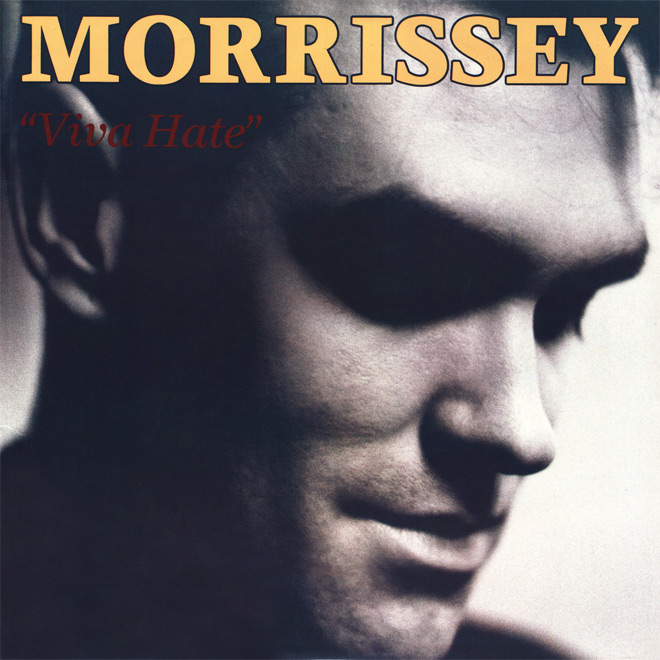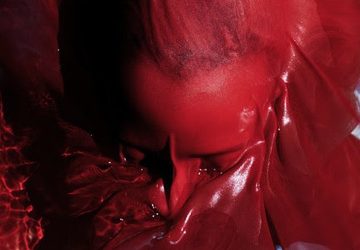Of course, Viva Hate is Morrissey’s debut album as a solo artist. However, in essence, it may arguably be regarded as the follow-up to 1987’s Strangeways, Here We Come; and that Morrissey’s entire discography, by extension, is the continuation of The Smiths’ music.
After all, Guitarist Extraordinaire Johnny Marr had long admitted that the reason he eventually left The Smiths was because he could no longer feel the compulsion to dig into the musical excursions of his former partner in songwriting. In simple words, their respective musical visions slowly grew apart from each other and ultimately headed very different, if not the opposite, directions. Morrissey insisted in soldiering on, musical style and all. Restless Marr, on the other hand, wanted stylistic shift and a change of vibes. So, he quit The Smiths, dissolving the group consequently. Morrissey carried on.
However, with due respect to and in fairness with Mr. Marr, he set a very eclectic path for himself and was able to follow this proficiently and consistently as well, collaborating with countless fellow artists and joining a handful of other bands – which included The Pretenders (“Windows of the World”), The The (“The Beat[en] Generation”), Talking Heads (“[Nothing But] Flowers”), Electronic (“Vivid”), The Cribs (“We Share the Same Skies”), and Modest Mouse (“Fire It Up”); and embarking on, finally, his own solo career.
Then again, Morrissey, left to his own devices, simply moved on with the beloved template of The Smiths – Post-Punk/Jangle Pop music, which remained intact in his heart, burning passionately as ever.
Born on May 22, 1959, in Davyhulme, Lancashire, England, Morrissey was able to establish his name as a solo artist after his life with the legendary band The Smiths, which was short-lived yet, significantly, prolific and influential, formed in 1982, disbanded in 1987, with a musical legacy of four studio albums and a string of singles and B-sides, and the toast of perhaps the majority of self-proclaimed Indie bands that came after them.
Immediately after The Smiths broke up in 1987, Morrissey did not waste time. Powered by the creativity and energy that he developed with Marr, Andy Rourke (bass), and Mike Joyce (drums) – his mates in The Smiths – he forged his own path and began working with The Durutti Column’s Guitarist Vini Reilly and Producer Stephen Street. In 1988, six months after the release of The Smiths’ swan album, he unleashed the first fruit of this collaborative labor – seemingly symbolizing his rebirth after the death of his first love.
Released on March 14, 1988, on HMV/Sire Records, the U.K. Albums Chart number-one Viva Hate was the title of Morrissey’s debut album—belligerent, satirical, and intelligent as ever. It opened with the slightly cacophonic drone of “Alsatian Cousin,” which sounded as if it was molded from The Smiths’ rockin’ live album Rank. This was followed by the ominously driven, barbarism-at-home ditty “Little Man, What Now?” which tackled Morrissey’s penchant for the so-called ’60s British kitchen sink drama. Then there was the album’s crowning glory – the catchy and upbeat, string-laden “Everyday Is like Sunday,” which was one of Morrissey’s songs that are most-covered by other artists. Next was “Bengali in Platforms,” whose albeit slow groove and Morrissey’s languid drawls were compensated by the guitar’s saccharine jangliness. Another short track, barely two minutes in length, the heavily orchestrated “Angel, Angel Down We Go Together” sounded like a sonic sequel of The Smiths’ “Girlfriend in a Coma.”
With the soulful swing and crystal-clear piano flourishes of the almost eight minutes’ long “Late Night, Maudlin Street,” the miserablist storyteller Morrissey turned even more romantic and somber than he already was. Following next was the mighty “Suedehead,” whose biting splendor, intricate guitar works, and strobe-worthy beat proved that Morrissey could sound like The Smiths any time he wanted to, even without Marr. “Break Up the Family” built on the preceding track’s dancey rhythm, although it was less textured, but still effective nonetheless.
Morrissey relaxed the listener for a bit with the slow, waltzy cadence of “The Ordinary Boys,” only to push him again afterwards, as soon as the ensuing “I Don’t Mind if You Forget Me” buzzed its way into his ears like a bumblebee. Another waltz back to the theatrical, black-and-white Vaudeville-themed stage of the early ’60s followed next in the form of “Dial-a-Cliché.”
Finally, Morrissey ended Viva Hate with his most graceful and loveliest – aurally reminiscent of The Smiths’ “Please, Please, Please, Let Me Get What I Want” – yet lyrically most scathing anti-ballad, “Margaret on the Guillotine,” in which he crooned along with the lullaby strums of the guitar the immortal lines, “When will you die? When will you die?” over and over again in such a mellifluous voice, referring to the late British Prime Minister Margaret Thatcher, for whom his seething hatred was never concealed in any way. Viva Hate, indeed!
The rhythm section of The Smiths – Marr, Rourke, and Joyce – were, hands down, substantial to the music of the iconic English band. However, with his larger-than-life personality and controversial and often polarizing world views, plus his distinctive nasal swagger, literary brilliance, and vocabulary prowess – with due respect to his erstwhile bandmates – is a really formidable star to contend with and who is difficult to outshine. He might not be a certified musician, in the sense that he just sings and writes his lyrics, but Morrissey has long proven that he could carry the original vision of The Smiths on his own, as long as he is surrounded by supportive and equally proficient tunesmiths who would be willing to express the musical ideas that he is able to articulate eloquently.
If 11 solo albums and 48 mostly chart-topping singles (barring B-sides) in 30 years are not enough objectively to justify Morrissey’s musical genius despite the absence of his fellow Smiths by his side, then those who still claim that Morrissey is nothing without The Smiths is being delusional or is simply stricken with that bug called nostalgia.
So, raise your glass to 30 years of hate, err, of love for Morrissey’s solo career. Play Viva Hate over and over again, as if every day is Morrissey Sunday! Do not forget to dance along with it, too, with your bundle of gladioli, as you shout your reverence to the pope of mope. Viva Morrissey!







No comment